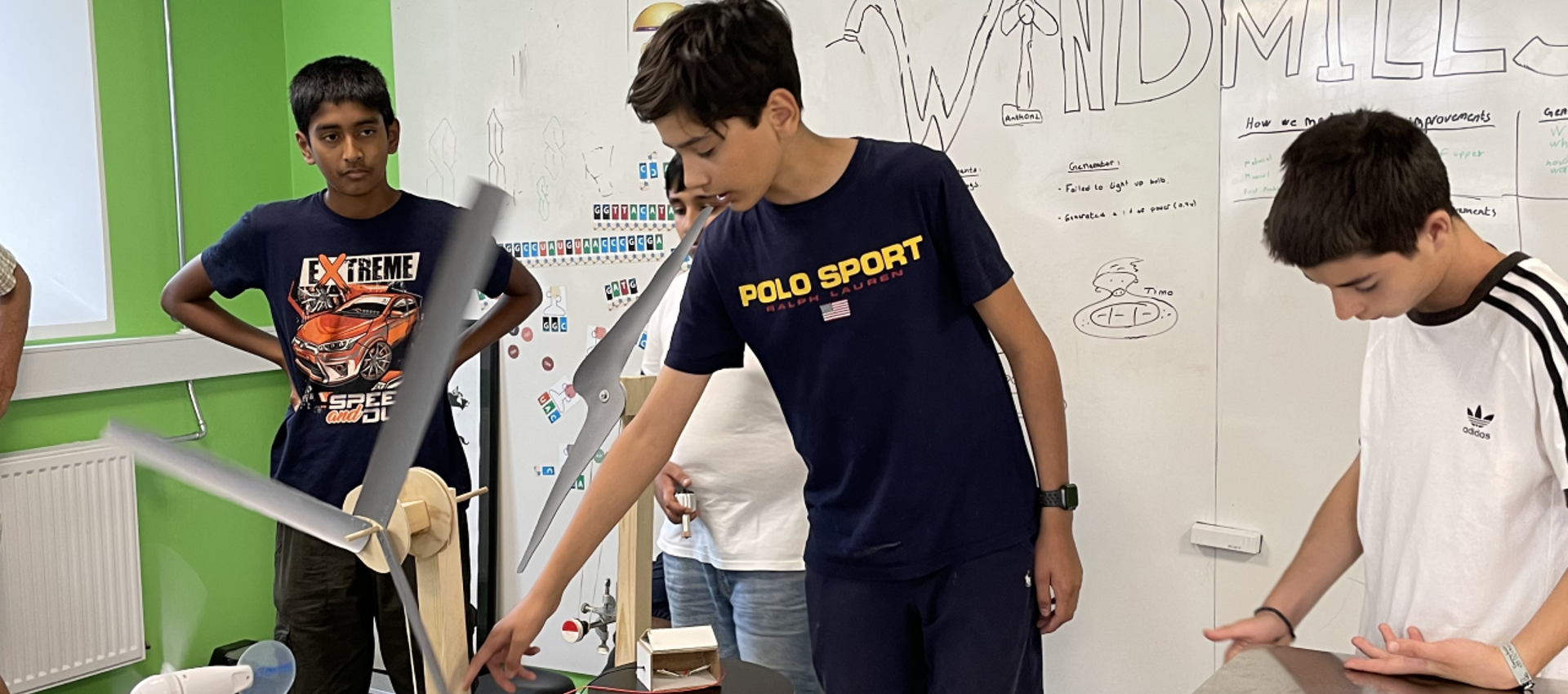
Upper Secondary consists of Secondary 10 and Secondary 11, which make up the 2-year exam programme at Odense International School. The ages of students starting in S10 is 14–15 and they are 15–16 years old when they complete S11.
Upon completing the International General Certificate of Secondary Education (IGCSE) exams in the spring term of S11, our graduates are poised to continue on to the Diploma Years of the International Baccalaureate programme (Nyborg Gymnasium offers the IB programme on our island of Funen), to a Danish high school, or even to a Danish business or trade school. Students in S11 will register their education wishes prior to a 1 March deadline and in conjunction with support from our guidance counsellor.
Most of our Key Stage 4 students take 8–9 IGCSE subjects, which is comparable to the level provided at top British and international schools around the world. The subjects are divided into five groups: languages, humanities & social sciences, science, mathematics, and creative & professional. Students must follow at least one subject from each group.
Within each group, students have the following choices:
Group 1—languages:
Group 2—humanities & social sciences:
Group 3—sciences:
Group 4—mathematics:
Group 5—creative & professional:
Starting in S10, students are offered more electives and language choices. Students who have followed French or German for a minimum of three years, will be able to choose to continue with the IGCSE French as a Foreign Language (0520) or IGCSE German as a Foreign Language (0525). Students who are relatively new to their foreign language are encouraged to study Diplôme d’Études en Langue Française (DELF). OIS is undertaking queries about Göethe certification in order to be able to offer a German equivalent to the French DELF.
Upper Secondary students continue studying Danish with four, weekly lessons split into three levels. The vast majority of our students who have lived here for at least a couple of years are most likely to follow Danish as a First Language. First language students will take the Danish School Leaver’s Exam (FP9) for Danish Language in Year 11.
Teachers in Upper Secondary must collect a minimum of three points of assessment per term as a basis for the term grade. Feedback is progress-oriented, recognises strengths, and offers areas for improvement. Parent consultations are conducted twice a year and students are also expected to attend these meetings.
Progress reports are sent home at the end of both term 1 and term 2. Students receive assessment marks and effort grades both terms, as well as written comments from their subject teachers at the end of term 2. The students receive assessment marks (from A*–G) and effort grades (from 1–5) for their work in Key Stage 4. The class teacher will also write a personal development comment on the term 2 progress report.
The A*–G system largely corresponds to the seven-tier, 12 to -3 grading system in Denmark, but please be aware of subtle differences and the fact that Folkeskolens fællesmål does not have the same targets as the Cambridge curriculum.
In terms of skill levels and academic challenges, Grade 11 of the IGCSE system is comparable to Grade 1 in a Danish high school and the pre-IB programme.
In February, S11 students will receive a reference letter from their class teacher which is required when applying to a Danish high school prior to the 1 March deadline. The OIS administration will also issue a current grade report and statement of predicted grades.
A* = 90–100
A = 80–89
B = 70–79
C = 60–69
D = 50–59
E = 40–49
F = 30–39
G = 20–29
If a Key Stage 4 student passes at least seven IGCSE subjects, including two from Group 1 and one from each of Groups 2–5, the student will receive a Cambridge International Certificate in Education (ICE).
If a student studies more than seven IGCSE subjects, the seven best results will be used to calculate the Cambridge ICE grade.
S11 students at OIS take all their exams in late April, May, and June. Please be aware that enterprise, physical education theory, art and design, as well as global perspectives, are project-based subjects with coursework due in March of the exam year. Language subjects also require oral examinations to be carried out in March.
All exams and coursework are moderated and marked externally by Cambridge Assessment International Education. Teachers sign coursework to confirm that it is the student’s own original work. Any form of copying or plagiarism is not tolerated.